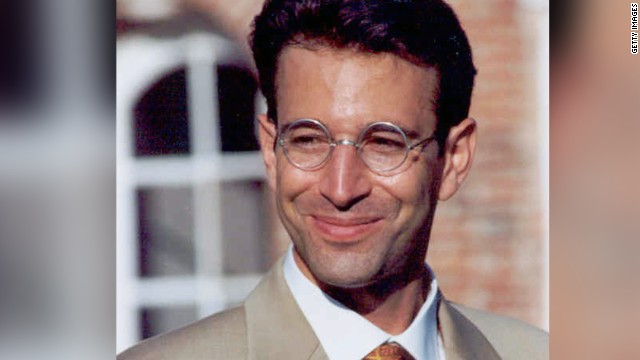Pakistan’s top court rules to free men previously convicted of kidnapping and murdering Daniel Pearl

Pearl was working as the South Asia bureau chief of the Wall Street Journal in 2002 when he was kidnapped in the southern Pakistani city of Karachi, while reporting on Richard Reid, the British terrorist known as the “shoe bomber.” The high profile abduction drew international attention, amid growing concern over the threat posed by radical Islamic terrorism. Assailants later filmed Pearl’s beheading and sent it to United States officials. It was among the first propaganda videos targeting hostages created by extremists, and helped to inspire other terror groups to film horrific and egregious acts of violence.Four men were arrested in 2002, and convicted of the kidnap and murder of Pearl. One, British national Ahmed Omar Saeed Sheikh, was given the death penalty. In April last year, a high court in Sindh province, where Karachi is located, overturned the convictions of three of the four men and reduced Sheikh’s sentence to seven years in prison, meaning he was eligible for release on time served.The court said the men had “suffered irreparable harm and extreme prejudice” after spending 18 years behind bars prior, and in December ordered all four to be set free, but both the Pearl family and the Pakistani authorities appealed to the country’s Supreme Court, which on Thursday ruled against them. The White House said the US is “outraged” by the decision, which was called by press secretary Jen Psaki an “affront to terrorism victims everywhere, including in Pakistan.” “We call on the Pakistani government to expeditiously review its legal options,” Psaki said at a press briefing Thursday, “including allowing the United States to prosecute (British national Omar) Sheikh for the brutal murder of an American citizen and journalist and we’re committed to securing justice for Daniel Pearl’s family and holding terrorists anywhere accountable for their heinous crimes.”Pearl’s father, Judea Pearl, told CNN that they “were in shock and total disbelief,” at the majority decision, which he described as “a crime against humanity, against journalism, against the core of our civilization. So we are very shocked and hope some steps will be taken to correct for this injustice.”He added that they are asking the US State Department and Department of Justice to “pursue vigorously a request for extraditing Omar [Saeed] Sheikh for this crime as well as other [crimes] he’s committed against US citizens — and we hope the Pakistani court and government will respond positively to such requests.”The four men, who are still in detention following the court’s ruling, have been placed on the country’s exit control list, barring them from leaving the country, according to Pakistan’s interior ministry.CNN’s Nikki Carvajal contributed to this report.






